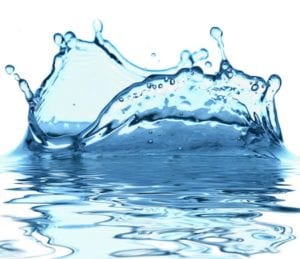A team of hydrology experts met at the Water Research Commission (WRC) to explore the shape and future of hydrology research in South Africa.
The high-level specialists came mostly from universities (e.g. UKZN, UFS, UP, Rhodes) offering hydrology as a qualification, and science councils (e.g. NRF, SAWS, CSIR, SAEON, etc.) and government departments (such as DWA and DST), as well as industry. All agreed that the future of hydrology in South Africa is currently uncertain, with a declining capacity in terms of the number of well- trained hydrologists in the country, lack of hydrological data and unreliable funding. The aim of the dialogue was to harness the specialists’ expertise and experience to guide the design of a hydrology audit. The key focus areas for discussion were “who employs and trains hydrologists”, “what are the key challenges for 2025” and “what research gaps are still experienced in South Africa”. Currently, the water sector faces increasing and major problems related to hydrology capacity, as very few universities have committed to training hydrologists in South Africa. From the debate it emerged that the current national capability in hydrology is unknown, as there is no audit mechanism to measure the throughput of ”real” hydrologists with a solid foundation in science and engineering. The few trained hydrologists have been absorbed by the private sector due to unattractive salary packages offered by government institutions. Wandile Nomquphu, research manager at the WRC said, “The ability of South Africa to manage its water resources will be largely determined by its capability to deliver world-leading hydrology science to support national strategic needs, and to respond to emergencies such as floods and droughts. Research and development activities are key to keeping such capability at the cutting edge. Unfortunately, the country does not seem to have a long-term strategy to ensure a constant supply of hydrologists with a strong foundation in science and engineering. However, through the WRC funding there is some throughput of new students that has always been produced through research projects”. Prof Denis Hughes of Rhodes University mentioned that, internationally, a call has been made to change the way hydrological research is conducted due to the deepening and widening human-induced hydrological change that has radically altered the environment, and to better align the science with societal needs as there is a move into an increasingly uncertain future.This statement was reinforced by Prof Roland Schulze of the University of KwaZulu-Natal who said, “The hydrology challenges are amplified in developing countries such as South Africa where water scarcity is a reality due to the semi-arid to arid nature of the climate, the low ratio of runoff to rainfall, the accelerated demands for a limited resource due to increasing population, the deteriorating water quality due to land use and land cover change and the real threats of climate change”.
“The cost of not doing anything about these current problems could be disastrous in the long run,” added Schulze. As the economy and population continue to grow, South Africa faces greater pressures on its precious resource – water. Hydrology, as the science which seeks to understand the movement and storage of water in the water cycle, plays a vital role in the application of hydrological principles to investigate, understand and quantify these challenges, and in finding solutions to these water problems. For instance, the focus of hydrology research in South Africa over the past 15 years has largely been on supporting the implementation of the National Water Act of 1998, to varying degrees of success. Nomquphu further said, “In the late 1970s South Africa had a Coordinating Committee for Research in the Hydrological Cycle (operated by the DWA and WRC with involvement of other government departments) that initiated and coordinated all hydrological research in the country. Through this committee hydrology research centres were established in a number of universities (with strong field-based research), hydrology capacity grew and some internationally-recognised hydrology breakthroughs were made. With the support of the then DWA’s Hydrological Research Institute, the committee also acted as the authority on hydrological issues in South Africa. In the absence of such an authority, South Africa has no clear and nationally-agreed hydrology research programme for the country, and there is no dedicated centre to articulate hydrological issues. The absence of a national strategy to grow hydrology research expertise, and a mechanism to audit capacity in this field, leaves the country vulnerable. These realities suggest that hydrology is a vulnerable discipline in South Africa.






